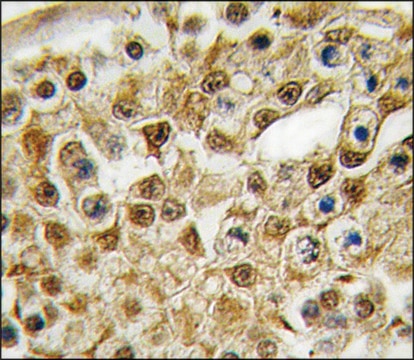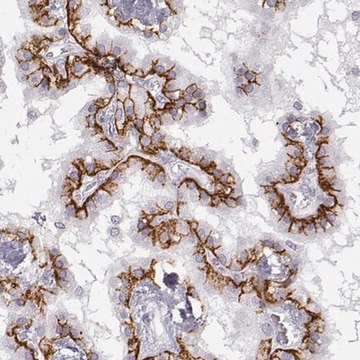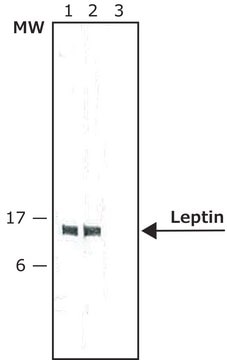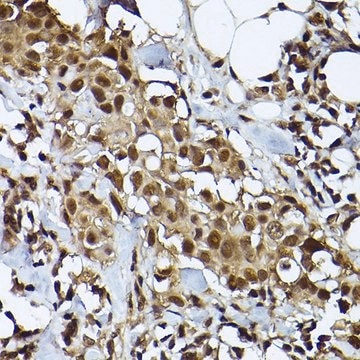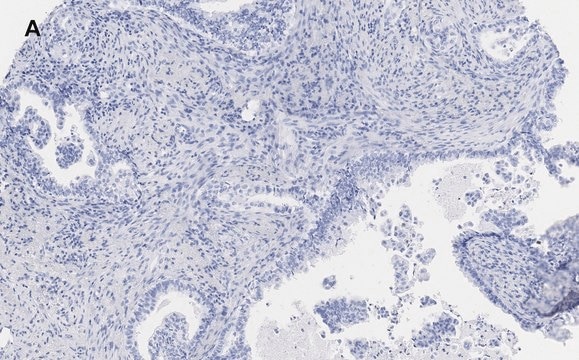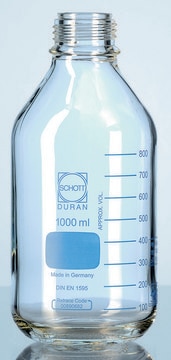L9536
Anti-Leptin Receptor antibody produced in goat
affinity isolated antibody, lyophilized powder
About This Item
Recommended Products
biological source
goat
Quality Level
conjugate
unconjugated
antibody form
affinity isolated antibody
antibody product type
primary antibodies
clone
polyclonal
form
lyophilized powder
species reactivity
mouse
technique(s)
flow cytometry: suitable
immunohistochemistry (frozen sections): suitable
western blot: suitable
UniProt accession no.
storage temp.
−20°C
target post-translational modification
unmodified
Gene Information
mouse ... Lepr(16847)
Related Categories
Immunogen
Biochem/physiol Actions
Physical form
Disclaimer
Still not finding the right product?
Give our Product Selector Tool a try.
Storage Class
11 - Combustible Solids
wgk_germany
WGK 3
flash_point_f
Not applicable
flash_point_c
Not applicable
ppe
Eyeshields, Gloves, type N95 (US)
Certificates of Analysis (COA)
Search for Certificates of Analysis (COA) by entering the products Lot/Batch Number. Lot and Batch Numbers can be found on a product’s label following the words ‘Lot’ or ‘Batch’.
Already Own This Product?
Find documentation for the products that you have recently purchased in the Document Library.
Our team of scientists has experience in all areas of research including Life Science, Material Science, Chemical Synthesis, Chromatography, Analytical and many others.
Contact Technical Service
